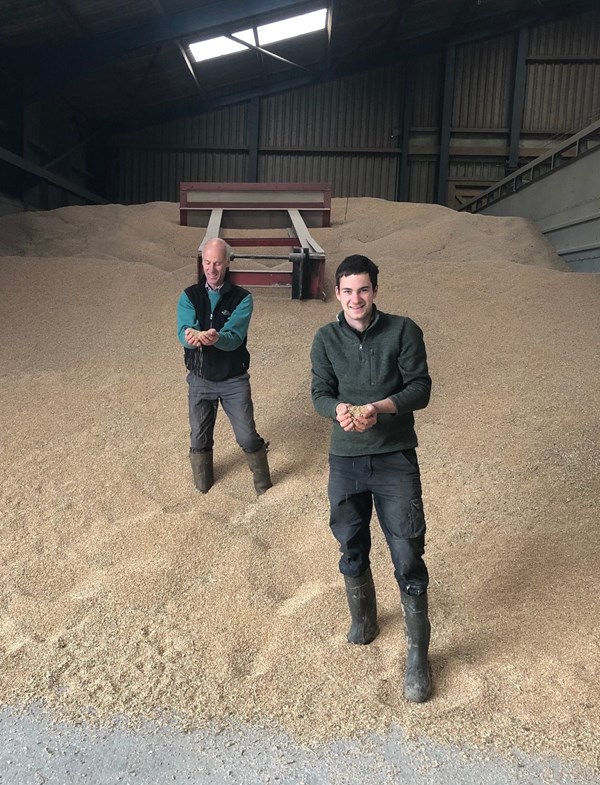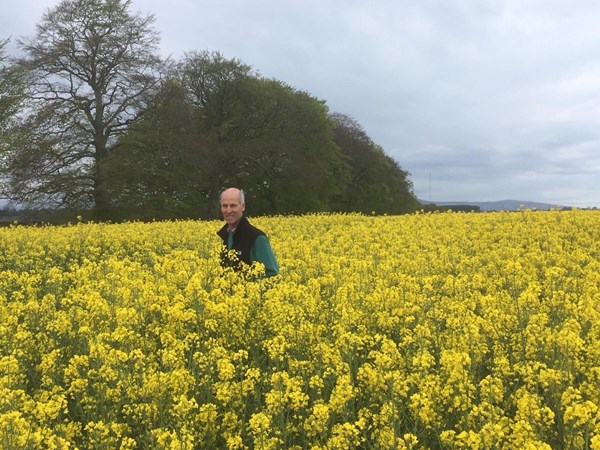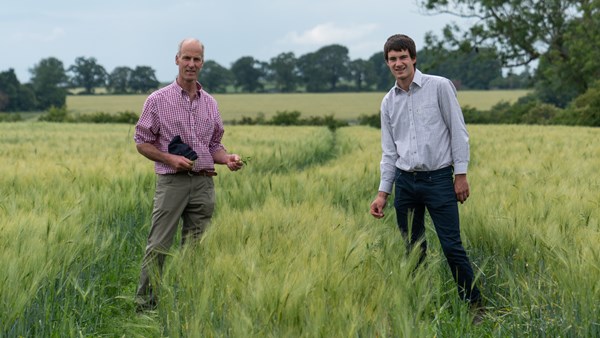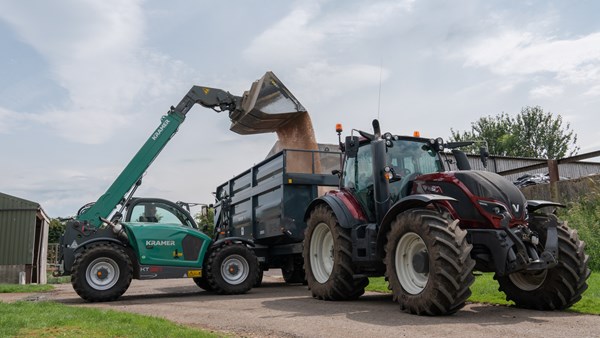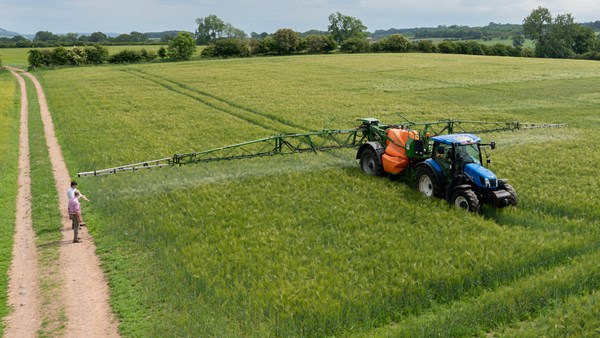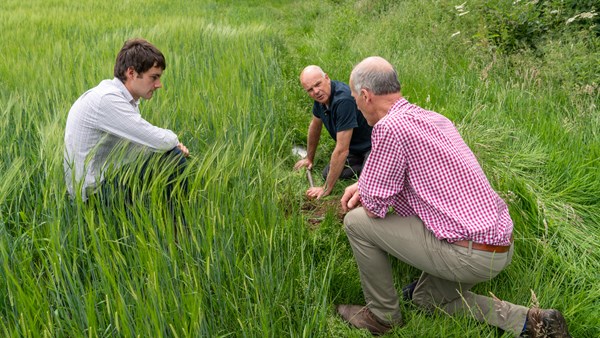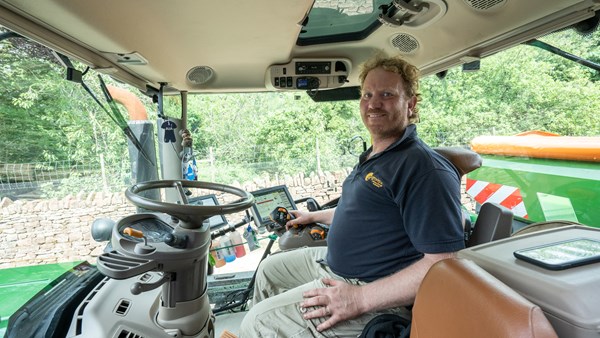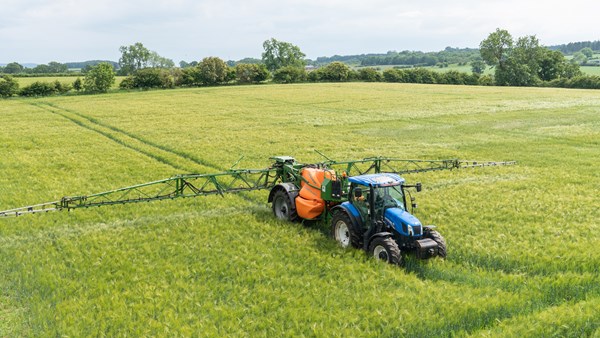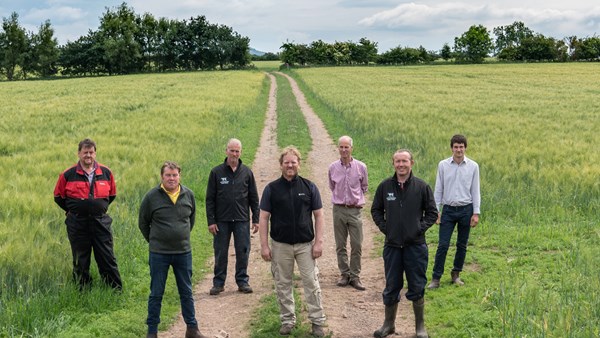- Home
- Projects
- Farm Excellence
- Penrith Monitor Farm
Penrith Monitor Farm
About Penrith Monitor Farm
- Brackenburgh Home Farm joined the Monitor Farm Programme in 2020 and is the first in Cumbria
- James Turner and trainee farm manager Henry Scholefield manage the 800 ha mixed farm
- The farm also has a dairy unit, sheep, hill cattle and pigs
- Soil types are sandy and loam
James Turner manages the Penrith Monitor Farm alongside trainee farm manager Henry Scholefield. As well as the 300 ha arable enterprise the farm has a dairy unit, sheep, and hill cattle and pigs. The typical arable rotation includes winter wheat, winter barley, oilseed rape, spring beans, oats, stubble turnips and grass leys. James and Henry mainly use a min-till system.
In addition to the arable business, the farm also has a dairy unit, sheep, hill cattle and pigs. The farm employs six full time members of staff who work alongside James and Henry across all enterprises.
During the three-year programme James and Henry aim to embrace all new advice and incentives to be more sustainable. They hope to seek rewards from natural capital assets while also developing Henry into a strong successor to manage the business going forward. With this in mind, topics that will be covered by Penrith Monitor Farm over the next three years include soil health, integrated pest management and succession.
For information about past meetings and events, click '+ See more'.
Past meetings and updates
The regenerative agriculture journey - 21 February 2023
At the final meeting of the 22/23 winter season, the group looked at how to approach farming without glyphosate. Also discussing the use of clover underlays to reduce cultivations whilst providing nitrogen to the growing crop, and how a mixed rotation can add diversity.
Paul Cawood (Spunhill), Paul Cawood (Spunhill) and Joe Collins (Harper Adams University) spoke at the meeting, detailing the research they are carrying out on the impact of different farming approaches.
Land drainage and its undervalued role in the future of farming - 24 January 2023
Philip Wright (Wright Resolutions), visited Brackenburgh in January 2022 to discuss proactive land drainage, correct set-up of cultivation equipment and considering soil structure.
Preparing for zero carbon farming - 15 November 2022
In the first meeting of the 22/23 winter season, James and Henry reviewed harvest 2022 and welcomed Ryan Douglas (ADAS) onto farm to discuss how farms can prepare for zero carbon farming. Ryan demonstrated how carbon calculation can assist arable farmers in managing their zero carbon targets.
AHDB's information regarding carbon calculation can be found, here.
IPM and biostimulants - 8 March 2022
Pete Berry (ADAS) delivered a talk reviewing the function, efficacy and value of biostimulant products available for UK cereals and oilseeds. Staffordshire farmer Tim Parton followed, detailing how he is using biostimulants and brews on his own farm to benefit crop health.
Digging up the dirt on soil health and cover crops - 8 February 2022
Anne Bhogal (ADAS) talked to the group about how to better understand soils and manage them to be healthy and resilient. This was followed by a discussion on the use of cover crops with a focus on the Innovative Farmers Field Lab Sheep Grazing On Cover Crops, also covering how livestock and cover crops can compliment the arable rotation.
Labour and machinery review - 23 November 2021
Over the winter season a Labour & Machinery Review was conducted at Brackenburgh.
In this meeting, AHDB's Technical KE Manager Harry Henderson and Rob Meadley (Brown & Co.) analysed the results and compared them to with other Monitor Farms in the programme.
North West and Northern Ireland Monitor Farm summer meeting – 25 June 2020
Cropping at Brackenburgh has been consistent throughout the last 15 years, with 150ha of land being permanently arable for up to 33 years.
Due to this, there has been extensive consideration towards establishment practices on the farm.
Historically a plough-based system requiring up to 8 passes to establish and roll crops, the adoption of more novel practices has reduced this to just 2 or 3.
Despite an exceptionally wet autumn effecting establishment across the farm, James and Henry managed to put trials in place.
Barley sown as-was performed decently in some fields but really struggled on heavier land due to waterlogged conditions. Instead of re-drilling, Oats were direct drilled for use as feed, to some success.
Leaving crops unsprayed with herbicides as part of a Headland Management scheme led to the attraction of beneficial insects and the weeds that grew were also used to feed the cows on the farm.
A hybrid variety of OSR performed well, James puts the crop’s success down to clover being grown as a companion crop.
The farm is heavily involved in Environmental Stewardship schemes. You can hear James explain more about these, as well as a detailed machinery overview, in the Northwest and Northern Ireland Monitor Farm Summer Meeting Webinar.
+ See more

